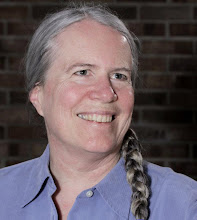Monday, October 28, 2002
Voting
My subject today in my history of technology course was the impact of television on politics. I told my students the story of how two years ago I strongly encouraged students to vote. We had class the Wednesday after election day, and with the election still up in the air we talked about the situation in class. Out of my nearly 100 students I had 8 or 10 who had voted in Florida. I knew that my students' political opinions are on average very different from my own, and I wondered if by encouraging my students to vote (and they in turn might have influenced their friends) I might have caused the defeat of the candidate of my choice.
Some of my students wanted to conclude that the 2002 election proved their vote didn't count. I argued that the electoral college can mean that a small number of people's votes count, but since you can't predict in which state that small number will be you have to assume it might be you. I also argued that if most people believe their vote doesn't count then the system won't work, so if we believe in democracy we should seek to have the faith that our votes count.
One student said he wasn't going to vote because he didn't know enough. We talked about the inadequancy of television information, but I suggested it is now easy to get specific information on candidate positions via the internet. In my second class we tried it out, and they found Issues 2002. Interesting information on anyone with a congressional voting record, though it is weak on candidates who don't have such a record.
Subscribe to:
Post Comments (Atom)


No comments:
Post a Comment